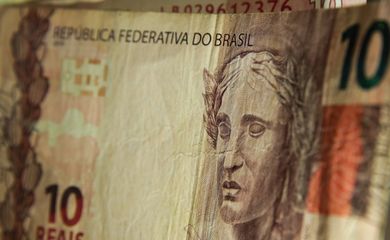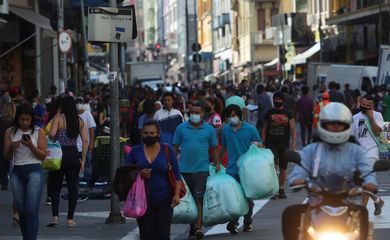Dollar closes at its highest since April, after Fed meeting

Influenced by the foreign market, the dollar surpassed the R$ 5.70 barrier and closed at the highest level in eight months. The stock exchange alternated gains and losses, but ended with the first high after two straight days of decline.

The commercial dollar ended this Wednesday (15) sold at R$ 5.708, up 0.25%. The price opened the day at a low, dropping to R$ 5.66 around 9:30 am, but reversed the trend after the opening of the North American market. In the fifth consecutive high, the North American currency is at its highest value since April 13, when it had closed at R$ 5.718.
Not even the Central Bank's (BC) action was enough to hold the price. The monetary authority sold US$ 950 million of international reserves and auctioned US$ 1.45 billion in foreign exchange swap contracts, which are equivalent to the sale of dollars in the futures market.
In the stock market, the day was marked by a small recovery. The B3 Ibovespa index closed at 107,431 points, up 0.63%. The indicator operated lower for most of the day, but reacted towards the end of trading, driven by the performance of stock exchanges in the United States.
The dollar rose across the planet after the Federal Reserve (Fed, US Central Bank) announced it would accelerate the withdrawal of monetary stimulus (buying bonds) and raise interest rates in the largest economy on the planet three times in 2022. Originally , the Fed's asset-buying program would end in June, but will end in March of next year because of rising inflation in the United States.
Interest rate increases in the United States encourage the flight of resources from emerging countries, such as Brazil. That's because US Treasury bonds, considered the safest investments in the world, become more attractive with higher interest rates. At today's meeting, the Fed kept base rates at the lowest level in history, between 0% and 0.25% per annum.
Another factor that influenced the markets on Wednesday was the announcement that economic activity slowed down. The Central Bank's Economic Activity Index (IBC-Br) dropped 0.40% in October. Taken as an anticipation of the Gross Domestic Product (GDP), the indicator shows that increases in basic interest rates are beginning to impact economic growth.
*With information from Reuters
Text translated using artificial intelligence.




